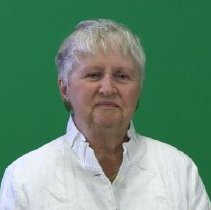Archive Record
Images

Metadata
Object ID |
2014.37.2 |
Object Name |
Video Recording |
Title |
Anne Heggtveit Interview 2014 |
Interview Summary / Résumé d'entrevue |
Anne Heggtveit, Order of Sport recipient, inducted in 1960, born in Ottawa, Ontario, talks about her skiing career. Anne explains that while she competed in her first Olympic Winter Games at 17 years old in 1956, she first gained international experience in 1954 when she competed and won against World Champions. Anne describes how she was still recovering from a serious injury when she competed in Italy in 1956. Anne explains how she learned a lot from Lucile Wheeler and how Lucile paved the way. She explains that there was some overlap between great skiers like Lucile Wheeler and Nancy Greene and how she benefited from skiing with them both. Anne describes how the emotional and psychological recovery from serious injury took as much time and effort as recovering from physical injuries. Anne tells how she completed a university degree at age 50. Anne also talks about the mental transition of figuring out "who you are and where you are going" after she completed her lifelong dream of winning a Gold medal. Anne describes how skiing on a team with competitive people encouraged them all to try harder. She also explains that she learned to work hard, be a good sport and be helpful to teammates. Her message to youth is to be active and get out into nature. She believes that what you learn in sport carries over to work and life and that sport is part of a balanced life. Entrevue avec Anne Heggtveit, 24 juin 2014. MP4 d'origine numérique, temps de visionnement : 00:13:00. Anne Heggtveit, récipiendaire de l'Ordre du sport, a été intronisée en 1960 et est née à Ottawa, en Ontario. Elle parle de sa carrière de ski. Anne explique qu'elle a participé à ses premiers Jeux olympiques d'hiver à l'âge de 17 ans en 1956, mais qu'elle a d'abord acquis de l'expérience internationale en 1954 lorsqu'elle a compétitionné et remporté des victoires contre des champions du monde. Anne décrit comment elle se remettait encore d'une grave blessure lorsqu'elle a compétitionné en Italie en 1956. Anne explique qu'elle a beaucoup appris de Lucile Wheeler et affirme que Lucile a ouvert la voie aux autres. Elle explique qu'il y avait un certain chevauchement entre de grandes skieuses comme Lucile Wheeler et Nancy Greene et comment elle a bénéficié de skier avec elles. Anne décrit comment la récupération émotionnelle et psychologique d'une blessure grave demande autant de temps et d'efforts que la récupération des blessures physiques. Anne raconte comment elle a obtenu un diplôme universitaire à l'âge de 50 ans. Anne parle également de la transition mentale nécessaire pour savoir " qui vous êtes et où vous allez " après avoir réalisé son rêve de toute une vie de remporter une médaille d'or. Anne décrit comment skier au sein d'une équipe de personnes compétitives les a encouragées toutes à essayer plus fort. Elle explique également qu'elle a appris à travailler dur, à être une bonne sportive et à aider ses coéquipières. Son message à l'intention des jeunes est d'être actifs et de sortir dans la nature. Elle croit que ce que l'on apprend dans le sport est applicable au travail et à la vie et que le sport fait partie d'une vie équilibrée. |
Scope & Content |
Anne Heggtveit interview, 24 June 2014. Born digital MP4, viewing time 00:13:00. 0:23 Mother and father introduced her to skiing at the young age of two 1:25 Even though she was young at her first Olympics, she had been competitive internationally already and felt she was ready to be there despite her age. 2:25 Anne had a broken leg before the Olympics in Italy- although her results were challenging, they did show that she was on the road to recovery, and she continued to improve her results leading out of the Olympics and into the next year. 3:20 She benefitted from Lucille Wheeler who went to World Championships on her own outside of the Canadian team, demonstrating that international competition correlates with success, paving the way for Anne and other Canadian athletes to do the same. 4:08 Anne found that the hardest part of recovery from an injury isn't physical, but rather mental- emotional and psychological recovery, and getting back in the right state of mind. 4:42 "If she can do it, I can do it too." Talking about being part of a team with successful members. 5:18 You get motivation from your teammates who are making achievements. 6:30 She regretted not going to university because of her competitive career, and actually went back to do a bachelor's degree at age fifty. 7:30 She had been working since the age of eight to win Canada's first Olympic gold medal in women's skiing. 8:15 When you live so long with a goal, it can be difficult when you achieve that goal to know what you want to do after, but you realize you can apply that dedication to other things. 10:18 On a team, you have one person doing really well and you are competitive within that team, so it challenges you to be successful, since you know you can compete against those who are being successful around you. 11:00 Being around those who are successful allows you to copy those people and learn from their success. 11:22 Values hard work, being a good sport. Skiing is, "an individual sport but you're still part of a team representing your country." 12:13 Participation in sport and activity is very important; what you learn in sport carries over into life. Living a balanced life is important. |
Date |
2014/06/25 |
People |
Heggtveit, Anne |
Search Terms |
1956 Olympic Winter Games Games Cortina d'Ampezzo 1960 Olympic Winter Games Squaw Valley Alpine Skiing Women in sport Interview Alpine Skiing Anne Heggtveit |
bil.png)